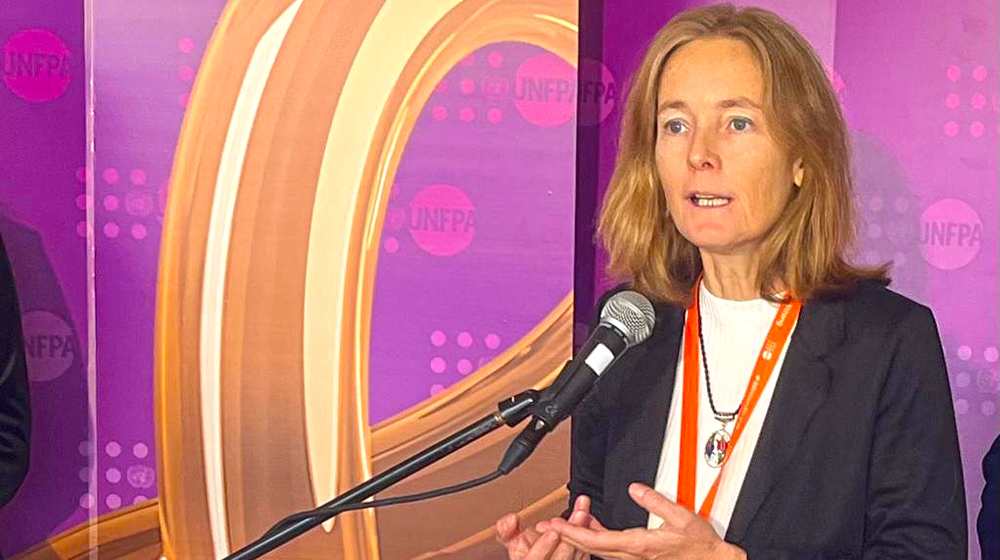
ISTANBUL, 15 November 2022 – Today’s milestone of a still-growing world population reaching 8 billion must not distract from the consequences that countries with shrinking population numbers could face if they fail to rethink the way they address demographic change, Florence Bauer, the Director of UNFPA’s Regional Office for Eastern Europe and Central Asia, said today. Globally, population growth has slowed down considerably, and has started to reverse in an increasing number of countries, most of them in Central and Eastern Europe, where a combination of outmigration and low birth rates has sent population numbers down. This affects the future of economies, social systems, and infrastructures.
read more
SARAJEVO, 14 November 2022 – Mayors and young people from 47 cities across Eastern Europe and Central Asia have gathered in Sarajevo to discuss ways to build youth-friendly cities in a region marked by rapid demographic change. The two-day conference, organized by UNFPA, the United Nations Population Fund, in collaboration with the City and Mayor of Sarajevo and the Bosnia and Herzegovina Associations of Municipalities from both entities, coincides with the world marking the global population reaching 8 billion on 15 November. “Cities have a crucial role to play in creating environments in which young people can thrive and fulfil their potential,” said Florence Bauer, UNFPA’s Regional Director Eastern Europe and Central Asia. “Truly youth-friendly cities care about young people’s well-being and opportunities, and thereby contribute to making societies better prepared to handle demographic change.”
read more
As more and more countries struggle with the consequences of low fertility rates and population ageing, governments must strengthen resilience towards demographic change by adjusting social systems and ensuring rights and choices for all people, including those in the margins of society, speakers said today at the opening of the 6th Global Symposium on Low Fertility and Population Ageing organized by UNFPA, the United Nations Population Fund, and KOSTAT, the national statistical office of the Republic of Korea.
read more
Later this month, the world’s population is projected to reach 8 billion -- another milestone in the rapid growth of the number of people on this planet. But as the world is preparing to hit this landmark, it is important to keep in mind that the global trend towards an ever-larger world population masks a remarkable diversity of demographic developments at regional and country level.
read moreSummary of UNFPA Eastern Europe and Central Asia's “Inclusive Family Policies for a Better Future” conference which took place in Istanbul on 22 September 2022. The event brought together policymakers, the private sector and experts to discuss gender-responsive family policies in Eastern Europe and Central Asia.
watch video